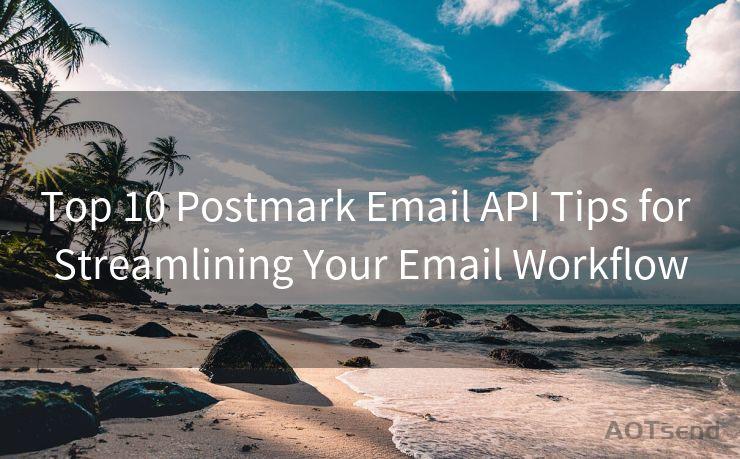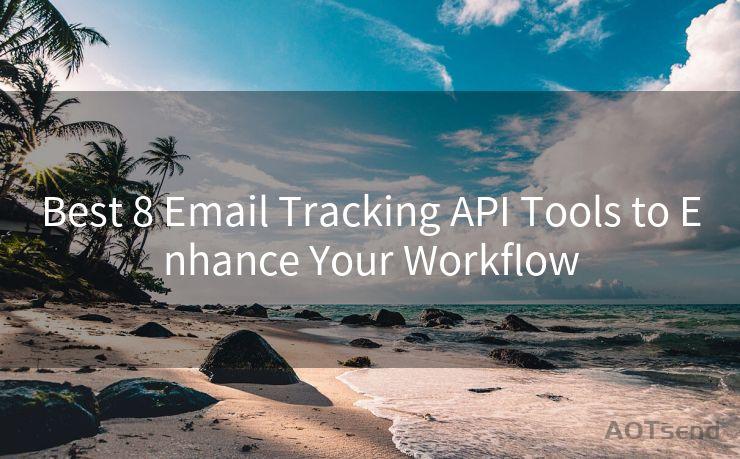19 Paubox API Best Practices
Hello everyone, I’m Kent, the website admin. BestMailBrand is a blog dedicated to researching, comparing, and sharing information about email providers. Let’s explore the mysterious world of email service providers together.




When integrating the Paubox API into your workflow, it's essential to follow best practices to ensure optimal performance and security. Here are 19 key best practices to guide you through the process.
1. Understand the API Basics
Before diving into integration, familiarize yourself with the Paubox API documentation. Understand the endpoints, request and response formats, and error handling mechanisms.
2. Secure Your API Keys
Protect your API keys like you would any other sensitive credential. Don't hardcode them into your application, and consider using environment variables or a secure credential store.
3. Use HTTPS for All Requests
Ensure all communication with the Paubox API is over HTTPS to maintain the confidentiality and integrity of your data in transit.
4. Implement Rate Limiting
Respect the rate limits set by Paubox to prevent overloading the API and potential service disruptions. Implement proper error handling to manage rate limit exceptions gracefully.
5. Handle Errors Appropriately
Be prepared to handle various error responses from the API, such as invalid requests, server errors, or resource not found scenarios. Use the provided error codes and messages to troubleshoot effectively.
6. Validate and Sanitize Inputs
Always validate and sanitize user inputs before sending them to the API to prevent injection attacks and ensure data integrity.
7. Use the Latest API Version
Keep up with the latest version of the Paubox API to benefit from new features, improvements, and security updates.
8. Optimize Your Requests
Minimize the number of API calls by batching requests or caching responses when possible. This helps reduce latency and improve overall performance.
9. Monitor and Log API Activity
Keep track of all API activity, including requests, responses, and errors. This aids in troubleshooting and can help identify any unusual or suspicious activity.

10. Implement Pagination Correctly
When fetching large datasets, use pagination to retrieve data in smaller chunks. This prevents memory overloads and ensures a smoother data retrieval process.
11. Test in a Sandbox Environment
Before deploying to production, test your integration in a sandbox or development environment. This allows you to identify and fix any issues without affecting live services.
12. Handle API Changes Gracefully
Be prepared for potential API changes by subscribing to Paubox's change notifications and updating your integration accordingly.
13. Use Strong Authentication
Utilize strong authentication methods, such as OAuth, to secure access to the API and protect against unauthorized access.
14. Document Your Integration
Maintain detailed documentation of your API integration, including endpoints used, data flows, and error handling procedures. This aids in onboarding new team members and troubleshooting.
15. Monitor API Performance
Regularly monitor the performance of your API calls, including response times and error rates. This helps identify bottlenecks or potential issues early on.
16. Implement Retry Logic
For intermittent failures or network issues, implement retry logic with exponential backoff to ensure requests are successfully processed.
17. Securely Store Sensitive Data
If your application handles sensitive data returned by the API, ensure it is securely stored and transmitted, adhering to relevant data protection regulations.
18. Keep Up with Best Practices
Stay updated with industry best practices for API security and integration. This helps you proactively address new threats and vulnerabilities.
19. Leverage Paubox Support
If you encounter any issues or have questions about the API, don't hesitate to reach out to Paubox support for assistance.
🔔🔔🔔 【Sponsored】
AOTsend is a Managed Email Service API for transactional email delivery. 99% Delivery, 98% Inbox Rate.
Start for Free. Get Your Free Quotas. Pay As You Go. $0.28 per 1000 Emails.
You might be interested in:
Why did we start the AOTsend project, Brand Story?
What is a Managed Email API, How it Works?
Best 24+ Email Marketing Service (Price, Pros&Cons Comparison)
Best 25+ Email Marketing Platforms (Authority,Keywords&Traffic Comparison)
By following these 19 best practices, you can ensure a smooth and secure integration with the Paubox API, enabling efficient and secure communication within your organization.




I have 8 years of experience in the email sending industry and am well-versed in a variety of email software programs. Thank you for reading my website. Please feel free to contact me for any business inquiries.
Scan the QR code to access on your mobile device.
Copyright notice: This article is published by AotSend. Reproduction requires attribution.
Article Link:https://www.bestmailbrand.com/post5699.html











